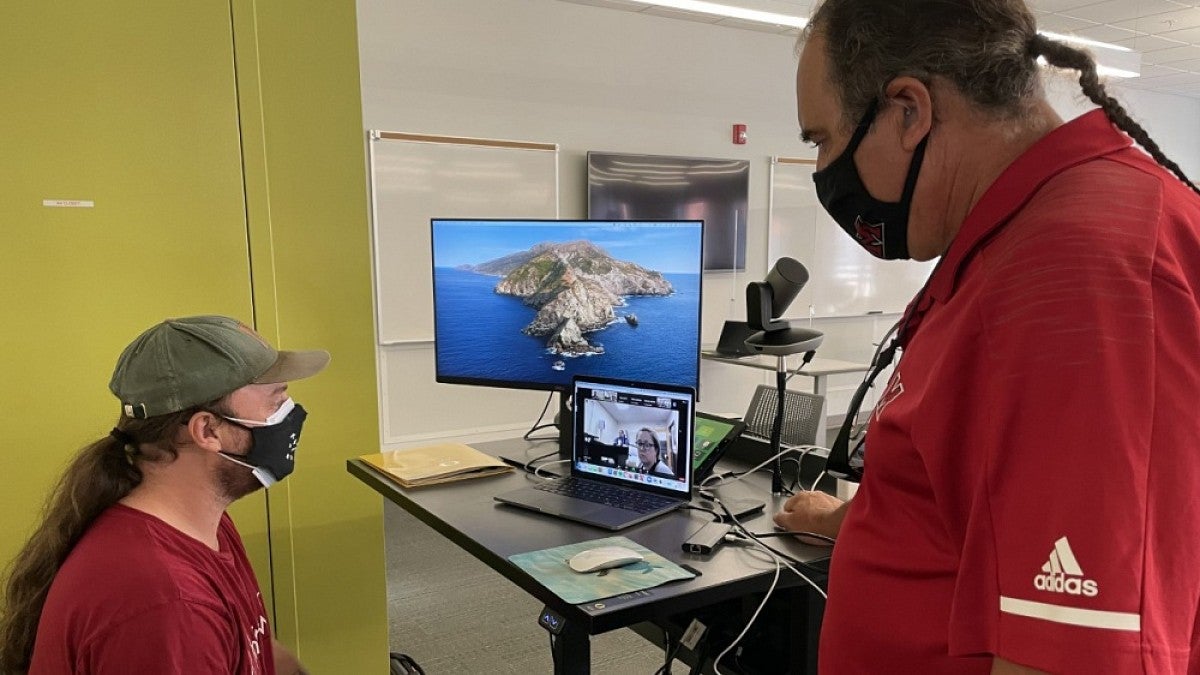The UO Department of Linguistics has received a federal COVID-19 relief grant to support curriculum, outreach and student employees in the Northwest Indian Language Institute and National Breath of Life Archival Institute for Indigenous Languages.
“The pandemic impacted the Northwest Indian Language Institute on all levels, from revenue loss and reduced staffing to programmatic changes resulting in limited course offerings to restricted opportunities for Native and other university students to learn about and work with endangered languages,” said Northwest Indian Language Institute Director Robert Elliot. The institute is based at the UO.
The grant money, which totals $326,233, was allocated by the National Endowment for the Humanities and is funded by the American Rescue Plan Act passed earlier this year and supported by Oregon’s U.S. senators, Jeff Merkley and Ron Wyden.
“We are grateful to Senators Wyden, Merkley and the entire Oregon delegation for recognizing the importance of humanities to the health and wellness of our state,” said Gabriela Pérez Báez, associate professor of linguistics. “The revitalization of Native American languages is critical to the well-being of tribal communities.”
Pérez Báez is also co-director of the National Breath of Life Archival Institute, which is based at the University of Miami and partners with the UO.
The language institute holds an annual, two-week summer institute at the UO and has done so continuously since 1998. The UO hosted a summer workshop for the archival institute this year. Both programs were held in a fully remote or hybrid format.
The grant will allow both institutes to build on the online curriculum and resources developed in response to the pandemic’s restrictions on in-person activity.
“The pandemic presented our programs with great challenges but also opened opportunities to use telecommunications technology to reach a larger audience,” said Pérez Báez. “The grant will allow NILI and the National Breath of Life to capitalize on these opportunities.”
The institutes will continue to develop a robust catalog of offerings that follow best practices in online learning: engagement and involvement, task-based learning and learner choice, community-building, ample support to prevent student loss, and small class sizes with low facilitator-to-teacher ratios, Elliot said.
The grants also will allow the institutes to hire tribal language experts and graduate employees.
See the full press release from the offices of Wyden and Merkley for more information about the federal grants.
—By Anna Glavash Miller, College of Arts and Sciences


